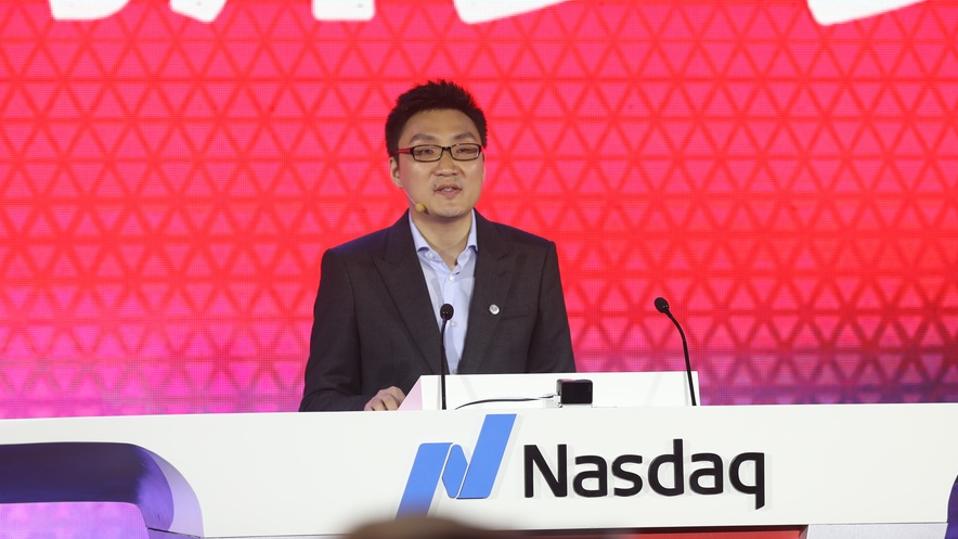The founder and former chairman of Chinese e-commerce firm PDD Holdings Colin Huang, who rose to become the richest person in China earlier this month, saw his net worth fall by roughly $14 billion on Monday as the company’s stock fell almost 30% following disappointing second quarter revenues.

Colin Huang, chief executive officer and founder of Pinduoduo, now PDD Holdings, on July 26, 2018.
Visual China Group via Getty Images
Key Takeaways
- The estimated net worth of Huang, still a major shareholder in PDD, fell to $35.3 billion Monday, a drop of more than 28%.
- The change pushed him down Forbes’ real-time billionaires list to No. 50 in the world and No. 4 in China, behind Zhong Shanshan ($49.9 billion), Zhang Yiming ($43.4 billion) and Ma Huateng ($40.7 billion).
- PDD’s stock was trading at $97.35 just after 12 p.m. EST, a drop of more than 30% and by far its lowest price of 2024.
- PDD owns popular online marketplace Temu, and has seen its stock rise almost 22% over the last year.
- Monday’s plummet comes after the company reported missed earnings and revenue estimates for the second quarter.
Key Background
PDD Holdings reported diluted earnings of 23.24 yuan ($3.20) per share in its quarter ending June 30 and sales of 97.06 billion yuan ($13.64 billion), down from analysts’ sales expectations of 100.17 yuan, or $14.1 billion.
Operating profit more than doubled from the same quarter last year, from $1.78 billion to $4.4 billion. Jun Liu, vice president of finance at PDD, acknowledged in a statement that the company’s revenue growth rate has slowed quarter-to-quarter and said the trend is likely to continue because of “intensified competition and external challenges.” Lei Chen, CEO of PDD, said the company is willing to make “short-term sacrifices” as it invests in the business.
Surprising Fact
PDD isn’t the only online marketplace in China to have reported missed expectations as the country experiences an economic downturn with high unemployment rates and falling household income. Alibaba, a similar online marketplace selling ultra-discounted goods, reported net income down 28.77% in June and JD.Com missed its revenue projection in the same month.
CNBC reported in July that young consumers are saving more than generations past and that the idea of setting ultra-low spending targets has even become a viral social media trend called “revenge saving,” sparked by the country’s weakening economy.
Forbes Valuation
Huang founded Pinduoduo, which later changed its name to PDD Holdings, in 2015. He’s seen his networth rise from an estimated $13.5 billion in 2019 to a peak of $55.3 billion in 2021 and an average of $38.9 billion so far this year. He served as chairman of the company until 2021 and is still a major shareholder. PDD launched Temu, an online budget marketplace whose biggest competitor is Shein, in 2022. Huang also founded Xinyoudi, an online games company, and e-commerce platform Ouku.com.
Don’t miss the opportunity to gain exclusive insights that could shape your financial future. Join us at the Forbes Australia Icons & Investors Summit to hear directly from Australia’s top business and wealth experts. Tap here to secure your ticket.
Look back on the week that was with hand-picked articles from Australia and around the world. Sign up to the Forbes Australia newsletter here or become a member here.


